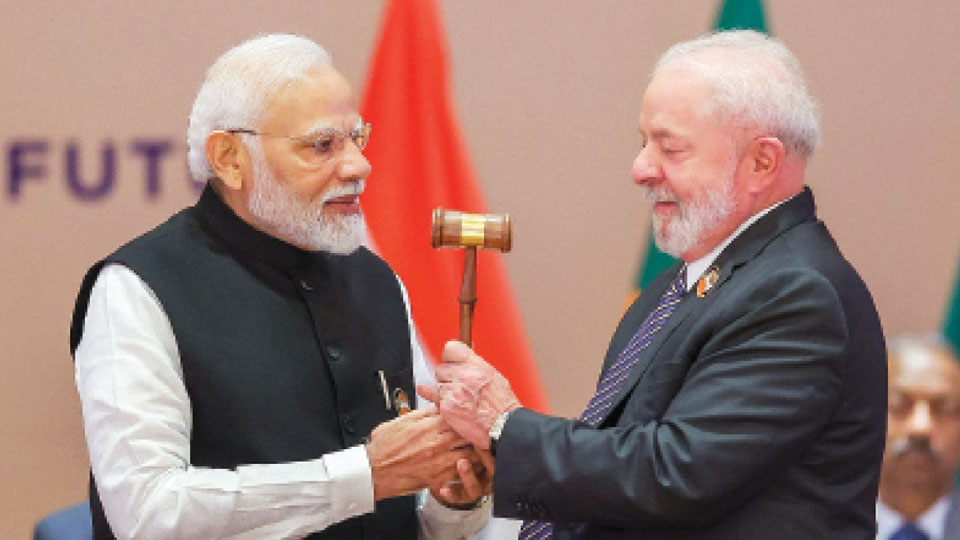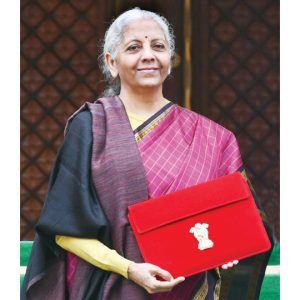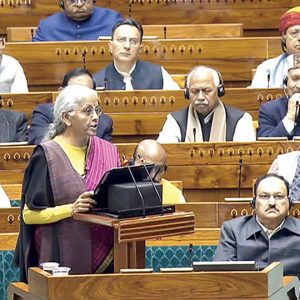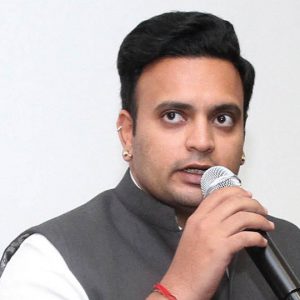Passing of G20 presidential gavel to Brazil marks the start of Delhi to Rio journey
New Delhi: Prime Minister Narendra Modi, at the conclusion of the 18th G20 Summit, emphasised the pressing need for reforming global institutions and expanding the UN Security Council to better reflect the contemporary world.
He asserted that adapting to changing times is essential for maintaining relevance. Additionally, he proposed a virtual G20 session in late November to review the Delhi Summit’s outcomes and decisions.
At the concluding session yesterday, Modi handed over the gavel and offered best wishes to Brazil for the next presidency. Brazil will officially take over the mantle of the presidency of the elite grouping on Dec. 1.
In his closing remarks, Prime Minister Modi highlighted the importance of representing emerging countries in the UN Security Council and urged similar reforms in the World Bank and IMF.
Prime Minister Modi’s call for reform was echoed by Brazilian President Luiz Inácio Lula da Silva, who stressed the need to include developing nations as permanent and non-permanent members in the UN Security Council. He also advocated for increased representation of emerging countries in global financial institutions.
During the ‘One Future’ session of the G20 Summit, Modi reiterated the importance of reforming global institutions, particularly the United Nations, to align with current realities. He pointed out that the world has drastically changed since the establishment of the UN, with a significant increase in member countries. However, the composition of the UN Security Council remains largely unchanged, necessitating reforms to reflect contemporary global dynamics.
Prime Minister Modi acknowledged the effectiveness of regional groupings that have emerged over the years and emphasised the need to expand the roles of multilateral development banks. He referred to the historic inclusion of the African Union in the G20 as a step in the right direction.
New-generation technologies
Furthermore, Modi stressed rapid advancements in new-generation technologies like Artificial Intelligence (AI). He proposed the establishment of a framework for ‘responsible human-centric AI governance,’ underlining the need for AI to benefit areas such as socio-economic development, global workforce and research and development.
He advocated for a shift from a GDP-centric approach to a human-centric vision of progress, underscoring India’s commitment to data sharing, especially in space exploration, in the interest of humanity.
He called for a world where not only the interests of countries align but also their hearts, emphasising unity and collaboration on a global scale.
In conclusion, the G20 Summit yielded significant outcomes, including the Green Development Pact, an Action Plan on Sustainable Development Goals, high-level principles on anti-corruption, support for Digital Public Infrastructure and an emphasis on multilateral development banks.
The Summit also welcomed the African Union as a permanent member, reflecting the evolving global landscape.
Prime Minister Modi’s vision for a human-centric approach to development and the adoption of responsible AI governance underscored the need for sustainability and stability in a rapidly changing world.








Recent Comments